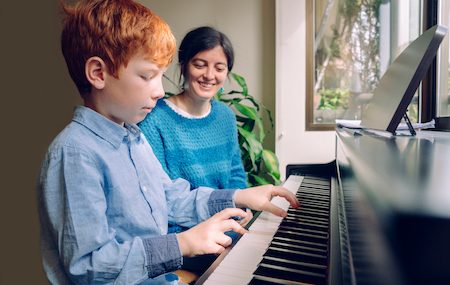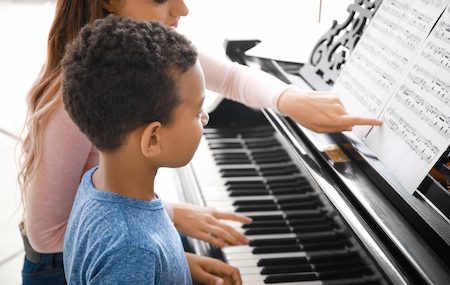Beethoven studied music from an early age, and wrote his first composition at 12 years old.
While your child might not be the next Beethoven, giving them the gift of music early can help them succeed in life. Playing the piano has been proven to:
- Improve language skills
- Improve memory
- Encourage creativity
- Improve time management and organization skills
- Improve math skills
- Improve reading comprehension
- Strengthens hand and eye coordination
- Boosts self-esteem
Start too early, and your child might not be ready for the task of playing the piano. Push too hard, and they might fight you every step of the way.
Your child may be ready for piano lessons if:
Have a sense of maturity
Kids mature at different rates. When your child has control over their motor skills, and can pay attention to one specific activity for 30 minutes, they may be ready for piano lessons. Assess how they would act with one-on-one coaching for a half-hour, follow instructions, and enjoy the process.
They are motivated to play
We often recommend introducing the piano to the home before you start lessons. Let them play without pressure. Introduce them to piano apps to play games. Take them to concerts and show them how the piano adds to music. If they’re excited about the process, they are more likely to stick with it.
Literacy skills are advancing
When a child loves to read and explore words and language, they are ready to explore the language of music. Music theory requires the ability to read and write. If they are familiar with words creating stories and ideas, they’ll be more open to exploring music notation and its relation to a song.
Is your child ready for piano lessons?
Let us help you find the perfect piano to suit your needs.











